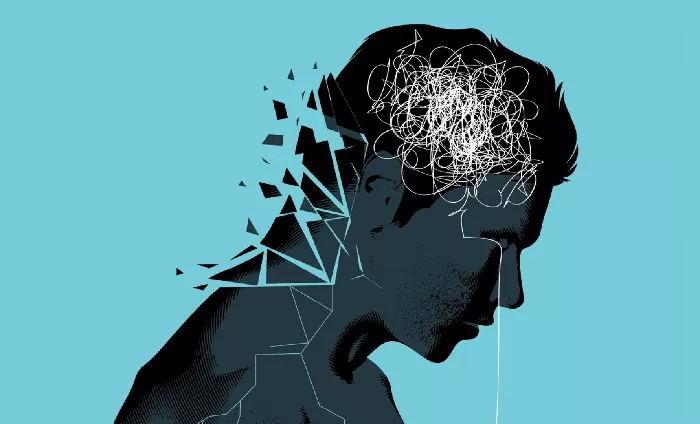Mental illness affects millions of people worldwide, yet there is still confusion about whether these conditions are permanent. Many individuals diagnosed with depression, anxiety, bipolar disorder, or other mental health conditions wonder: Will I ever recover? Is this a lifelong struggle? The answer depends on multiple factors, including the type of disorder, treatment options, and personal circumstances.
This article explores the nature of mental illness, the possibility of recovery, and the key factors that influence long-term outcomes. We’ll also debunk common myths and provide evidence-based insights into managing mental health conditions effectively.
What Defines Mental Illness
Mental illnesses are medical conditions that disrupt a person’s thinking, emotions, and behavior. They range from common disorders like anxiety and depression to more severe conditions like schizophrenia. These illnesses are not simply “bad moods” or “phases”—they are real, diagnosable health issues that require proper treatment.
Common Types of Mental Illness
- Anxiety Disorders (e.g., generalized anxiety, panic disorder, PTSD)
- Mood Disorders (e.g., depression, bipolar disorder)
- Psychotic Disorders (e.g., schizophrenia)
- Personality Disorders (e.g., borderline personality disorder)
- Eating Disorders (e.g., anorexia, bulimia)
Each of these conditions has different symptoms, causes, and treatment approaches. Some may improve significantly with therapy and medication, while others require long-term management.
Is Mental Illness Permanent? The Spectrum of Recovery
The idea that mental illness is always permanent is a misconception. Recovery varies widely depending on the disorder, severity, and individual factors. Here’s a breakdown of different mental health conditions and their potential outcomes:
Anxiety Disorders: Often Manageable, Sometimes Fully Reversible
Anxiety disorders, including panic attacks, social anxiety, and PTSD, are among the most treatable mental health conditions. Cognitive Behavioral Therapy (CBT) and exposure therapy have high success rates. Many people recover completely, while others learn coping strategies to keep symptoms under control.
Key Insight: Early treatment increases the chances of full recovery.
Depression: Episodic but Can Recur
Depression can be a single episode or a recurring condition. Some people experience one major depressive episode and never have another. Others struggle with chronic depression. Antidepressants, therapy, and lifestyle changes (exercise, sleep, nutrition) play crucial roles in managing symptoms.
Key Insight: Depression is not always lifelong, but relapse prevention is important.
Bipolar Disorder: Chronic but Controllable
Bipolar disorder involves extreme mood swings (mania and depression). While it is a lifelong condition, mood stabilizers, therapy, and lifestyle adjustments help many individuals lead stable, productive lives.
Key Insight: Proper treatment can prevent severe episodes.
Schizophrenia: Long-Term but Not Hopeless
Schizophrenia is a severe mental disorder that often requires lifelong treatment. However, antipsychotic medications and psychosocial therapies can significantly reduce symptoms. Some people regain full independence, while others need ongoing support.
Key Insight: Early intervention improves long-term functioning.
Personality Disorders: Deep-Rooted but Changeable
Conditions like borderline personality disorder (BPD) are deeply ingrained but not unchangeable. Dialectical Behavior Therapy (DBT) has shown great success in helping individuals regulate emotions and improve relationships.
Key Insight: Long-term therapy can lead to substantial improvement.
What Factors Determine Whether Mental Illness Is Permanent?
Several key factors influence whether a mental health condition persists or improves over time:
Early Diagnosis and Treatment
The sooner someone receives help, the better their chances of recovery. Untreated mental illness often worsens over time.
Access to Quality Care
Therapy, medication, and support groups make a huge difference. Unfortunately, not everyone has equal access to mental health services.
Personal Commitment to Treatment
Sticking to therapy and medication plans greatly improves outcomes. Skipping treatment increases the risk of relapse.
Strong Social Support
Family, friends, and support networks play a crucial role in recovery. Isolation worsens mental health conditions.
Healthy Lifestyle Choices
Exercise, sleep, nutrition, and avoiding drugs/alcohol contribute to mental well-being.
Biological and Genetic Factors
Some disorders have a stronger genetic component, making them more persistent. However, even these can often be managed effectively.
Can Mental Illness Go Away Without Treatment?
Some mild conditions, such as temporary stress-related anxiety or situational depression, may improve on their own. However, most mental illnesses require professional intervention. Ignoring symptoms can lead to worsening problems, including:
- Increased risk of self-harm or suicide
- Strained relationships and job loss
- Development of additional mental or physical health issues
Bottom Line: While some people experience temporary relief, professional treatment offers the best chance for lasting recovery.
Debunking Myths About Mental Illness Permanence
Myth 1: “Mental illness is always a life sentence.”
Fact: Many people recover fully or learn to manage symptoms effectively.
Myth 2: “Medication is the only solution.”
Fact: Therapy, lifestyle changes, and social support are equally important.
Myth 3: “People with mental illness can’t live normal lives.”
Fact: With proper treatment, many lead successful, fulfilling lives.
Myth 4: “You can just ‘snap out of it’ if you try hard enough.”
Fact: Mental illness is not a choice—it requires real medical and psychological care.
Hope for Recovery: Real-Life Success Stories
Many individuals with severe mental health conditions have gone on to live meaningful lives:
- John Nash (Nobel Prize winner with schizophrenia)
- Demi Lovato (Singer with bipolar disorder)
- J.K. Rowling (Author who overcame depression)
These examples show that recovery is possible, even in challenging cases.
Conclusion
While some mental health conditions require lifelong management, many people experience significant improvement—or even full recovery—with the right treatment. The key is seeking help early, staying committed to therapy, and building a strong support system.
If you or someone you know is struggling, remember: mental illness is treatable, and recovery is possible. Reach out to a mental health professional to explore the best options for healing.
Related topics:
- Is Fibromyalgia A Sign Of A Mental Illness?
- Is Major Depressive Disorder Permanent ?
- What Happens If Depression Is Left Untreated?


